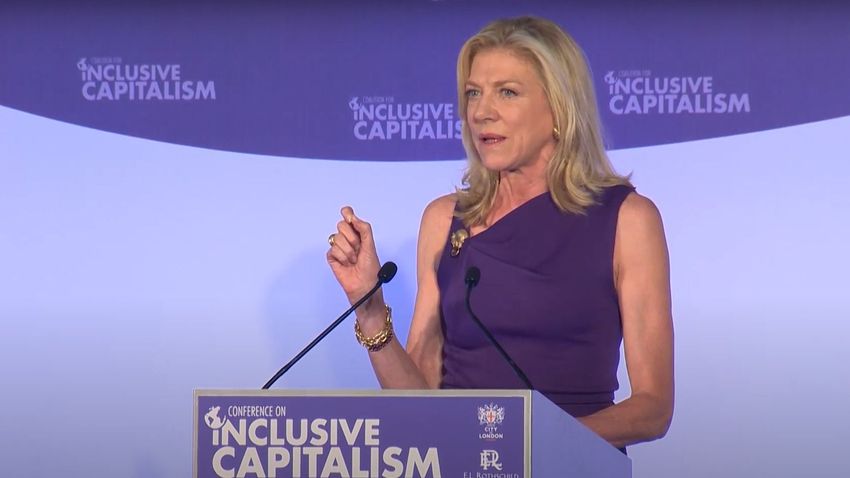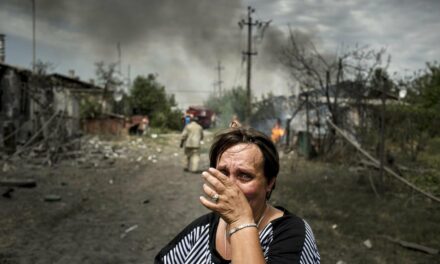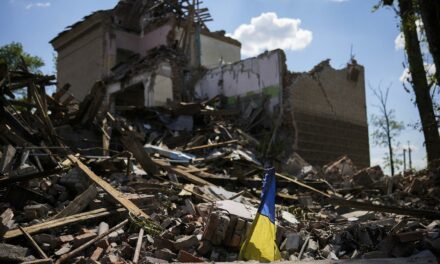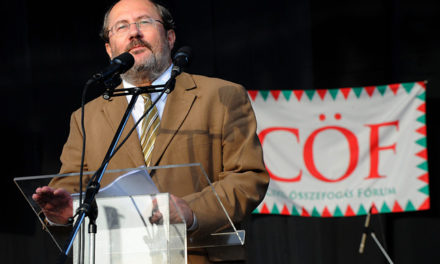There can hardly be any doubt that the global elite have been planning to reshape the world and create a global governance, which we also call a world government, for quite some time. However, until recently, they preferred to hide their plans out of fear, and rarely made statements about it. Apparently because they didn't see the time to speak openly to the world public because they were afraid they would meet with tremendous resistance.
All this is well illustrated by what David Rockefeller, who died at the age of 101, said in 1991 to the globalist Trilateral Commission established in 1973: "We are grateful to the Washington Post, the New York Times, Time Magazine and other great publications that directors have attended our meetings and honored their vows of secrecy for almost forty years. It would have been impossible for us to unfold our plans to the world if we had been exposed to the public spotlight all these years.
But the world is now more experienced and better prepared to march toward world government. The supreme power of the intellectual elite and the world evils over nations can certainly be valued more than the national self-determination that we have practiced in the past centuries." However, let's not forget that it was during these years that the Soviet Union collapsed, the Cold War ended, and everything pointed to the creation of a unipolar world order, the United States of America and, of course, the deep state (the rule of the global elite) behind it.
Over the past thirty years, encouraged by America's successes in the 1990s, leading politicians have repeatedly mentioned the New World Order and World Government, gradually shedding the "restraint" and secrecy mentioned by Rockefeller back in 1991. In his speech to Congress on September 11, 1990, the elder George Bush declared that the time had come for a new world order based on world government. This turned out to be enough of a rallying cry for Barack Obama, Tony Blair, Joe Biden, Henry Kissinger, György Soros and many others to openly believe in the new world order in the following years.
Among the scattered statements, I would like to mention one, which is perhaps less known, but even more revealing. This was described in Time Magazine by none other than Strobe Talbott, who was the Clinton administration's deputy secretary of state: “In the next century, nations as we know them will be obsolete, all states will recognize a single, global power. National sovereignty was not such a great idea after all.” I think there are some of us who profoundly disagree with this, and even say the opposite, especially here in Central and Eastern Europe, where it was a great liberation for the nations living here that we finally got our national sovereignty back after the rule of the Soviet Union.
But let's read the author further: “The free world has created multilateral financial institutions that depend on the willingness of member states to give up some degree of sovereignty. The International Monetary Fund can effectively dictate fiscal policy, even how much tax a government has to levy on its citizens. The General Agreement on Tariffs and Trade regulates how much duty a nation can impose on imports. These organizations can be seen as protoministries of trade, finance and development for a united world.”
This gradual emergence characterized the last thirty years, we heard more and more and more often about the new world order, but if any analyst drew attention to it, he naturally received the resounding qualification of "conspiracy-theory-believer" and the associated exclusion.
From the spring of 2020, however, something changed: at that time, three months after the outbreak of the pandemic, Klaus Schwab, the president of the World Economic Forum, published his book, Covid-19: The Great Reset, in which he essentially outlines the big plan, the plan to rebuild the world, which a would be led by a supranational technocracy. Since then, events have accelerated in the last two years, and various institutions of the global elite are holding various meetings and conferences one after another, and more and more of their representatives are speaking more and more openly about the fact that the age of nation-states is over, that economic and social crises must and can be solved with global organizations. to solve.
In fact, they went so far as to create a new global organization in 2020, which the Hungarian public knows less about, so it would not hurt to report on this in a few sentences. Even more so, the Council for Inclusive Capitalism (CIC for short) is a body that is now not only about deliberation and theory production, but about action (the texts on their website clearly prove this), committed in close cooperation with the Davos with WEF, the World Economic Forum. (The council is also connected to the Vatican.)
And now hold on: who founded this company, which, so to speak, wants to work on the concrete implementation of the new world order and world governance? They don't make it up. Or really. He is none other than Lynn Forester de Rothschild, a pillar member of the Rothschild dynasty. Among other things, he stated: "We need new ideas and bold leadership."
Sure, sure, but they seem to have the tools for that, too. The board is run by a core group of global leaders who call themselves guardians, the "guardians" of inclusive capitalism (you couldn't ask for better guardians, although we certainly wouldn't want any guardians if we could).
The size of their assets is indicated by the fact that 249 giga-enterprises are members of the council (DuPont, Motorola, Bank of America, Salesforce, Merck, TIAA, Visa and Mastercard - I won't go on further, just note that the latter two will obviously play an important role in the globalization of digital currency) , representing a total of $10.5 trillion in assets under management, companies with a market capitalization of $2.1 trillion, and two hundred million employees in 163 countries. This is not a small influence, but the UN itself is a member of the council, Johnson & Johnson (the pharmaceutical industry cannot be left out), the Rockefeller Foundation (who would have thought?), the Ford Foundation and many others.
The reasoning of CIC, according to which all religions must unite (!) with the representatives of capital in the construction of a society and economy that is "fair for everyone", is peculiar, somewhat new to me, and somewhat frightening.
Well, here we really have to pay attention: the unification of religions sounds quite eerie and is not reassuring at all, because it implicitly raises the possibility of a completely new, syncretistic religiosity, which deprives, for example, the Christian religion of all its identity, and in it lies, for example, Islam and Christianity of some kind approach, with the background of Europe becoming a mixed ethnicity.
And behind this is not only the abolition of nation-states, the eradication of national and family identities, but now also the taking away of religious identity, the power of faith, as one of the most important human identity-forming entities. This could have unforeseeable consequences for human societies known so far.
I will mention two more worrying things about CIC's goals. One of them is that they want to achieve net zero carbon dioxide emissions as quickly as possible, which, if carried out recklessly, will practically kill modern economies, and Europe, for example, will soon be in trouble. Or maybe it's a side benefit?
The other is that one of the members of the CIC, the president of Bank of America, Brian T. Moynihan, suggested in an interview that they no longer really need the "help" of politicians and governments to achieve their goals. They will realize the beautiful new world they imagined without political help.
The only question is: why have global organizations started with such force now, why are they now acting with full openness to achieve their goals? I myself think of one thing the most: there are crises in the world that may eventually force people to seek the help of the world government themselves.
Well, if we could ask, we'd rather stay out of all this.
The author is a political scientist and a research consultant at the Center for Fundamental Rights
Source: Hungarian Nation
Cover image: Lynn Forester de Rothschild (Photo: YouTube/Screenshot)












